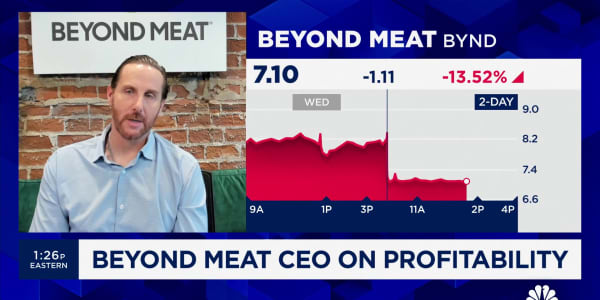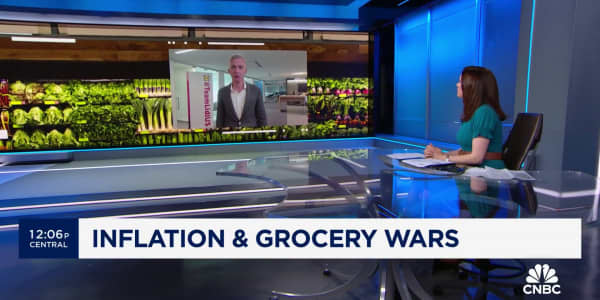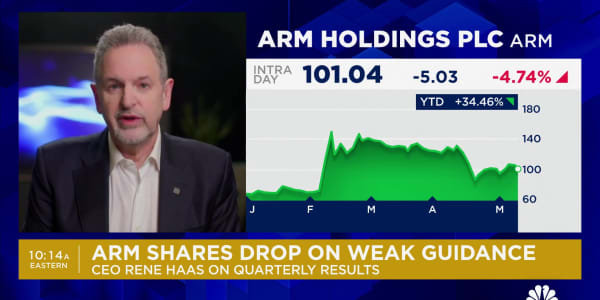
Surprise news Monday that a private investment consortium would buy Keurig Green Mountain Coffee Roasters for a huge premium spurred a massive share rally for the coffee maker, and for the moment at least erased a big chunk of the prior gains that short seller David Einhorn had made recently.
Einhorn, who is president of the $10 billion hedge fund Greenlight Capital, has been skeptical of the stock for years. He took a bearish, or short, position on Keurig shares at an average cost of $102, according to a late-October investor letter that referred to the trade as "our third-biggest winner this year."
As of Friday, Keurig shares had plunged to about $52, creating a roughly 49 percent gain on the position (not including any investment costs Greenlight may have incurred).
But all that changed Monday, when the investment firm JAB Holding announced its plan to acquire Keurig for $13.9 billion, marking a huge 78 percent premium on the price as of Friday's close. Given that Keurig has agreed to the buyout, the deal seemed a relatively sure thing, and the coffee maker's stock price rallied to the $90 range.
Read MoreEinhorn pounds the table on the worst S&P stock
It was not immediately clear whether Greenlight still held its Keurig position, and a spokesman for the fund company said that Einhorn was declining to comment. But even if the trade was still intact, Greenlight would appear to be in the black even at $90, given the $12 spread between its average shorting price and where the stock was trading Monday.
A classic long-short hedge fund, Greenlight takes both bullish and bearish positions on stocks. In the case of Keurig Green Mountain, Einhorn has been skeptical since at least 2011, when he unveiled a short position as part of a broader thesis that questioned accounting practices at the company, then known simply as Green Mountain. (The Waterbury, Vermont-based specialty coffee and tea seller added "Keurig" to its name a year and a half ago in honor of one of its better-known consumer brands.)
Although Einhorn removed his original short position late in 2014, calling it "ultimately unsuccessful" at the time, he revived the position in the months that followed, according to the late-October investor letter. The average price he disclosed suggested that Greenlight had entered the trade some time in May.
Despite apparently still being in the money on the Keurig short, it's been an otherwise bruising year for Greenlight, which was down more than 20.6 percent through the end of November.
Read MoreHedge fund hitters underperform-in a big way
On the flip side, a number of hedge funds appeared to be beneficiaries on Monday of their long positions in Keurig.
Eminence Capital, the New York fund that built the sixth-largest overall position in the coffee maker in recent quarters, appears to have locked in a healthy double-digit upside, according to investment filings (more exact figures are difficult to determine without knowing the fund's average entry levels).
"We are pleased that Keurig Green Mountain is realizing immediate value for its shareholders and would support a transaction at this price if a vote was brought to us as a shareholder," Eminece founder Ricky Sandler said in a statement. "That said, we believe there is significantly more value inherent in the Keurig hot and cold franchises than $92 per share. Given the upside we see in the GMCR shares, we would not be surprised to see other bids for Keurig Green Mountain."
Keurig could be immediately be reached for comment.
Other hedge-fund companies that appear to be benefiting from the trade include Highbridge Capital, D.E. Shaw, Citadel and AQR, according to recent filings.
Spokespeople for Highbridge, D.E. Shaw, AQR, and Citadel declined to comment on the position.






